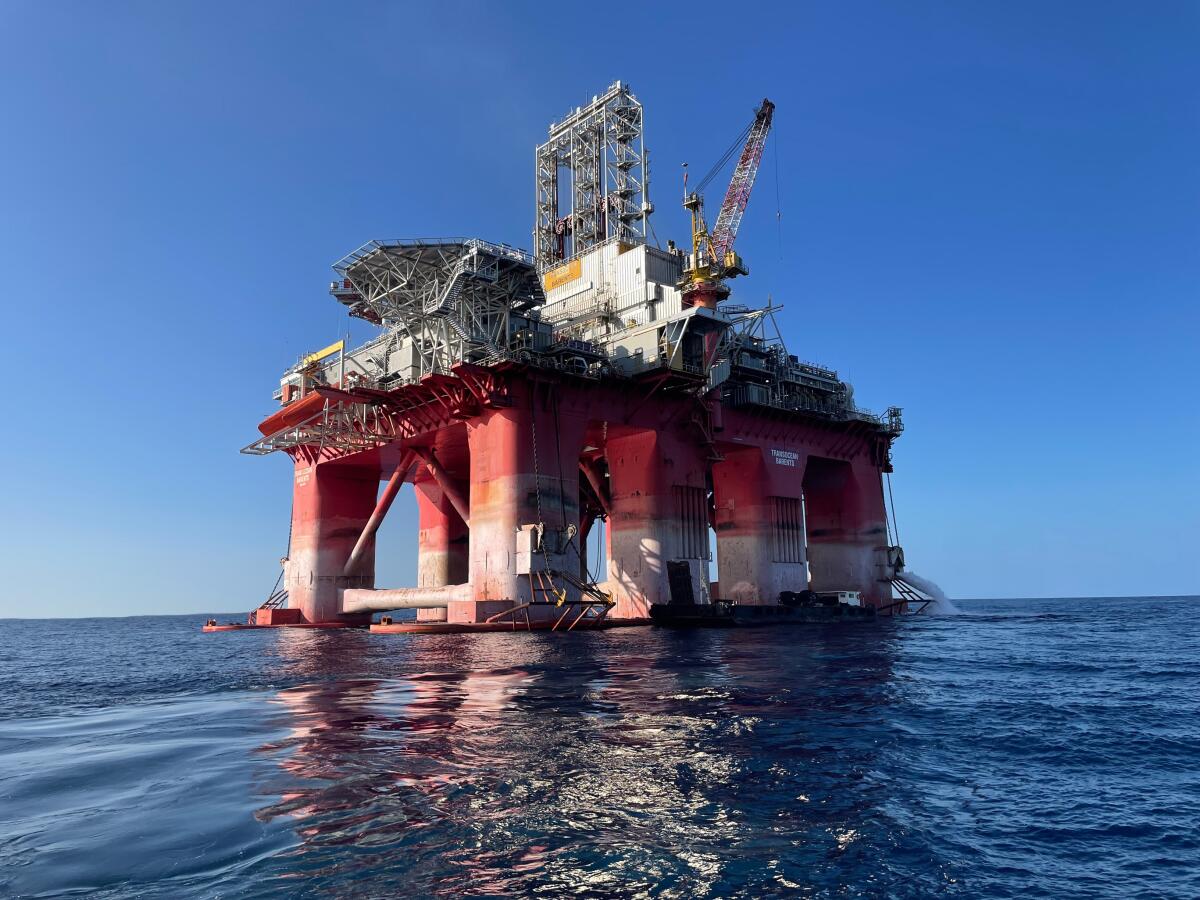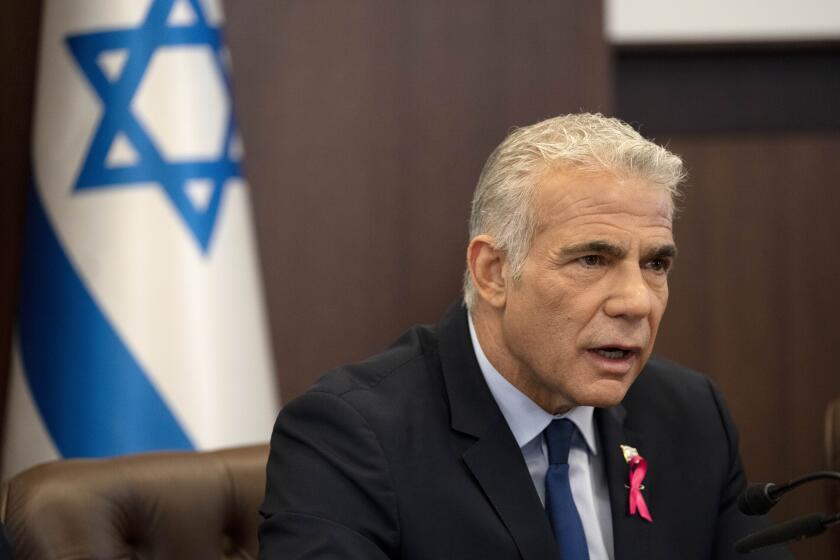Offshore drilling rig arrives in Lebanese waters ahead of work near border with Israel

- Share via
BEIRUT — An offshore drilling rig arrived at its destination in the Mediterranean Sea off Lebanon’s coast and will start operations in the coming weeks to search for gas, cabinet ministers said Wednesday.
The rig is expected to begin drilling this month in Lebanese waters near the border with Israel after the two countries reached a deal last year on their maritime border. Lebanon and Israel have formally been at war since Israel’s creation in 1948.
Cash-strapped Lebanon hopes that future gas discoveries will help the small Mideast nation pull itself out of the worst economic and financial crisis in its modern history.
Caretaker Minister of Transport Ali Hamie wrote on X, the platform formerly known as Twitter, that the rig arrived Wednesday morning at the location where it is scheduled to begin work. The rig faces the southern port city of Tyre.
“We hope that Lebanon will become an oil state,” Lebanon’s Energy Minister Walid Fayyad told reporters in Beirut, adding that the results of the drilling are expected in two or three months.
The two countries are bitter enemies, but both want to exploit undersea natural gas reserves in areas of the eastern Mediterranean.
TotalEnergies said in a statement that the rig, Transocean Barents, is now at around 75 miles off the coast of Beirut, and the first helicopter that will transport teams to and from the rig is at Beirut’s Rafik Hariri International Airport.
“The arrival of the equipment marks an important step in the preparation of the drilling of the exploration well” this month, TotalEnergies said.
In 2017, Lebanon approved licenses for an international consortium including France’s TotalEnergies, Italy’s ENI and Russia’s Novatek to move forward with offshore oil and gas development for two of 10 blocks in the Mediterranean. The borders of one of the two blocks were disputed by neighboring Israel until the maritime border deal was reached last year.
In January, Lebanon, ENI, TotalEnergies and state-owned oil and gas company Qatar Energy signed an agreement in which the Qatari firm replaced Novatek. Under the deal, Qatar Energy will take Novatek’s 20% stake in addition to 5% each from ENI and TotalEnergies, leaving the Arab company with a total stake of 30%. Total and ENI will each have 35% stakes.
Under the U.S.-mediated deal between Lebanon and Israel that was signed in October, the disputed waters would be divided along a line straddling the “Qana” natural gas field in the Mediterranean. Gas production would be based on the Lebanese side, but Israel would be compensated for gas extracted from its side of the line under a separately signed deal between TotalEnergies and Israel.
More to Read
Sign up for Essential California
The most important California stories and recommendations in your inbox every morning.
You may occasionally receive promotional content from the Los Angeles Times.














